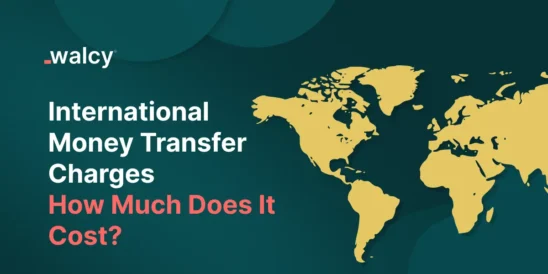Do you know what the money transfer businesses are? Or have you ever wondered how money transfer businesses work?
If you do not know about the money transfer business and are curious to know about how it works, you have landed at the right place.
With the advancement of time and technology, the need to make overseas transactions has reached the top. Today, the world has been a global marketplace and people are moving from one country to another for various purposes.
Some love to live as expats while some move abroad for employment. Similarly, some people go abroad to study while others just come around as a tourist.
Whatever their purpose they need to transfer funds across countries frequently. Not only individuals, but different businesses also need to make transactions across borders.
The need for International business transfer is mostly applicable in the import-export business. Moreover, businesses need to make cross-border payments for paying salaries to their freelancer employees while purchasing assets in another nation.
With the growing need for money transfer services, the concept of money transfer business has also been popular in recent years. The number of money transfer companies has also increased significantly.
In this blog, we will know everything about the money transfer business. Let’s begin with what a money transfer is.
What Is A Money Transfer?
A money transfer is a way of transferring money from one individual or business to another. This can be conducted via a variety of methods, including bank transfers, electronic payment services, wire payments, money orders, cheques, and mobile payment apps.
A guide to how a normal money transfer works is as below:
Need identification
The first step in a money transfer cycle process is identifying the need for the transfer of funds. The need arises as businesses need to make salary payments and foreign workers need to send money to their family or friends.
Gathering information
In this step, the sender starts gathering the information like recipient’s details, account number, identity documents and the total amount to be sent.
Verification
Once the information is collected, the next step is to verify the collected information. This step is essential because if the transaction is made to the wrong address or different people, you might lose your money.
Execution
Once all the information is verified, it’s time to make a money transfer. The funds are sent through the sender’s account to the recipient’s account via a financial institution or the selected money transfer provider.
Confirmation
Once the fund transfer is executed, the process doesn’t end here. The sender and receiver must make the confirmation from both sides. Once the transaction is confirmed, a money transfer process is completed.
A money transfer can be both domestic and international. Domestic money transfer is comparatively cheaper and easier than international money transfer.
Learn more about overseas payments.
What Is A Money Transfer Business?

A money transfer business is a business that offers the service of moving money from one location to another. The major purpose of such a business is to simplify and facilitate the need for money transfer easily, effectively, and efficiently.
In other words, any business managing the money transfer process is called a money transfer business. Individuals and corporations rely heavily on money transfer services to transmit and obtain funds across borders.
There are several services available to help people switch money between nations and currencies.
These services have grown in popularity in recent years as individuals seek alternatives to typical payment methods like debit or credit cards.
Many businesses are looking for methods for integrating these payment options into their business processes. A money transfer business needs a money transfer market to operate.
What Is The Money Transfer Market Or Money Transfer Industry?
The money transfer market, which is also referred to as the money transfer industry is an economic sector that facilitates the transfer of money from one person or entity to another.
It can be locally or internationally. This market includes a diverse spectrum of financial organizations, such as banks, money transfer operators, and fintech companies offering digital payment solutions.
The market has grown significantly over the last few decades as trade has become more globalized. Similarly, digital technologies have also emerged allowing for faster and more convenient money transfers.
As per business research insights, the worldwide digital currency transfer and remittance market was worth USD 6195.3 million in 2021 and is expected to reach USD 19790 million by 2028, growing at a CAGR of 18.1% over the forecast period.
Similarly, According to Mordor Intelligence, the worldwide remittance business will be worth $930 billion by 2026, rising at a compound annual growth rate (CAGR) of 3.4% from 2021.
Read about: Top 8 Fintech Trends of 2024 & 2025
What Is The Difference Between Remittance And Money Transfer Business?
People often consider remittance and money transfer business as the same. However, these two have some differences in it.
The remittance business is a type of fund transfer business that involves assisting and simplifying the movement of funds from one location to another. The main idea behind remittances is to transmit funds from migrant workers to family members or children in their home countries.
On the other hand, money transfer business refers to every aspect of transferring money from one place to another. Remittance is also type of a money transfer business.
Know more about remittance business.
What Is a Domestic Money Transfer Business?
Domestic money transfer business refers to the fund transfer services provided within a country’s boundary. It is useful while sending finances to and from those areas where the banks haven’t reached yet.
These days, several digital payment solutions have been built to make domestic money transfers more convenient.
Domestic money transfer businesses need a smaller budget than international money transfer businesses. The key reason for this is that the domestic money transfer business can be operated from anywhere and launched with only a computer and a reliable internet connection.
What Is An International Money Transfer Business?
It refers to the service of facilitating international transactions, provided by companies. The international money transfer business is hard to operate because you need to deal with and cope with different jurisdictions of various countries.
Moreover one needs to deal with foreign exchange rates and the longer transaction time. Establishing an international money transfer business needs robust technological infrastructures and knowledge. It also requires a huge amount of initial investment.
How To Open A Money Transfer Company?
Opening a money transfer business or company includes some basic steps. Here is the step-by-step guide on opening a money transfer company.
Step 1: market research about target audience and competitors
At very first, anyone willing to start a money transfer business must conduct effective market research. This research will provide an in-depth understanding of your target audience and competitors.
Additionally, finding out what your competitors are doing can give you an idea about how you can provide better service. Similarly, you must analyze what kind of service your target audience loves to have.
Additionally, you should find out what they are dissatisfied with in terms of money transfer service.
Step 2: Make a business plan
After market research, it’s time for you to make a business plan. Be you targeting an international market or a domestic one, it must include everything about your destination.
Make sure to identify and include your USPs (unique selling proposition). Moreover, there must be predefined business goals, target markets, revenue streams, and financial projections.
Additionally, it will be best if you prepare a roadmap for your marketing plans, operational structure, and staffing requirements
Step 3: Obtain an operating license and complete legal business registration
To run a money transfer business, you must get a license from a central bank. The requirement of getting a license might vary with countries.
However, it is sure you need to make a good amount of deposit for it. Similarly, you must legally register your business for which you might go through hassling procedures.
Step 4: Prepare your business process
It includes the preparation of every rule and policy you would love to set up in your business. It could include a working culture, structure, and strong anti-money laundering (AML). You also need to make Know Your Customer (KYC) procedures that adhere to regulatory rules.
Step 5: Open a correspondent bank account and set up your system.
In the fifth step, you are required to create a correspondent bank account for an easy, secure, and trustworthy transaction. It also helps you to manage multiple currencies. Similarly, you also need to set up your system before starting a money transfer business.
Step 6: Partnership with the needed institution
Running a money-transferring business is not possible without making partnerships with other institutions. You need to collaborate with different financial institutions in different countries if it’s an international money transfer.
Even in domestic money transfers, you need to collaborate with different local companies.
Step 7: Marketing
Lastly, promoting your business is most crucial these days and money transferring business couldn’t be an exception. You need to segregate a certain percentage of your investment funds in marketing as it helps to build your brand among customers. Marketing is equally essential as providing quality service.
Learn about opening a remittance business.
Conclusion
In a nutshell, money transfer business is increasingly growing upward along with the demand. In recent years, it has been proven as one of the most successful businesses of the decade.
Money transfer businesses are of two types, i.e., domestic and international. Starting a money transfer business needs to follow certain procedures.
These procedures might vary with the country. However, some basic steps include, conducting research, obtaining a license, setting up the system, creating correspondent bank accounts, and many more.
Know the cheapest way to transfer money abroad.
Do follow us on Facebook and LinkedIn, to stay connected with us.



